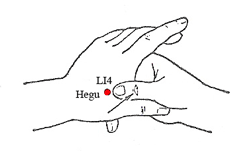After delivery, you will experience bright red bleeding that is very heavy. Any vaginal bleeding can seem to be too much, after not bleeding for 9 months. Bleeding after giving birth can be normal as this is the way that your body gets rid of the womb after you deliver your baby. Read on to learn what normal bleeding after giving birth is like, how long do you bleed after giving birth and when you should be concerned?
What Is Postpartum Bleeding Like?
The flow of lochia (bleeding after giving birth) will be very heavy and bright red at first. It might have clots in it. The color of the flow will change gradually to pink, and then to brown. Eventually, the flow will change to yellow-white.
For the first two days or so, you will need to wear a hospital-grade pad, you should be able to wear a commercial pad as the bleeding slows and becomes less. However, even during this time, you may feel a small gush of blood flowing when you stand up, and your pad might overflow because of the gush, as your vagina is shaped like a cup. When lying or sitting down, blood is cupped in that area. Blood may feel as if it is pouring out when you stand up. You may pass small blood clots as well.
Right after delivery, postpartum bleeding is heaviest. There is no need for alarm if bleeding seems to increase when you go home with your baby as this is very normal. Postpartum bleeding is normally more when you are up and about. Increased bleeding can be a sign that you are doing too much activity. If you pass clots that are larger than golf balls after you have rested, return to the hospital or call your health care provider.
How Long Do You Bleed After Giving Birth?
Immediately after you deliver, you will have lochia from your vagina. The discharge will change color to pinkish in a week’s time, and eventually become yellowish or white after about 10 days. You may have lochia lasting for about 2 to 4 weeks, and might come and disappear for like two months. Red lochia will reduce within the first few weeks as the flow gradually becomes less. However, if you try to do a lot of activity too soon, the flow might reappear. A sign that you need to slow down on your level of activity is the appearance of bright red blood.
Below are some guidelines that can help you determine the harshness of your vaginal bleeding:
- If you are soaking through your tampons and usual pads every hour for two or more hours, then this can mean that you are experiencing severe bleeding. Most women consider passing blood clots of blood from the vagina and soaking their usual tampons and pads hourly for more than two hours severe.
- Soaking more than one tampon or pad in 3 hours is considered moderate bleeding.
- Soaking less than one tampon or pad in more than 3 hours is considered mild bleeding.
- A few drops of blood or spotting is considered minimal bleeding.
What Can You Do About the Bleeding?
1. Do Not Use Tampons too Early
Other than stocking up on maternity pads, you really do not need to do anything out of the ordinary. Two or three packs of maternity pads will do. It is advised that you do not use tampons for the first six or so weeks, as using tampons can introduce a bacteria into your uterus that is still healing, which might cause an infection.
2. Ensure Absolute Hygiene
You might need to change a pad hourly, or every two hours to start with, then every three or four hours in the coming days or weeks. Ensure that you wash your hands before and after changing your pad. You may have a wound around the perineum (between your vagina and the back passage). Other than regularly changing your maternity pad, take a shower at least once a day, to ensure that this part is kept clean so as to prevent infections.
3. Wear Clothes that You Don’t Like
Choose to wear clothes that you do not care about so much, especially panties. It might not be such a good idea to wear your favorites immediately after delivery as spotting stains might ruin them. Consult your doctor if you have large clots and experience very heavy flow that soaks through a maxi pad hourly. Lochia smells like normal period. If you notice any foul smell, it is advised that you get in touch with your doctor.
When to Call the Doctor
If you develop the following symptoms, it is advised that you call a doctor as they are signs that indicate that you might have an infection.
- The discharge, or lochia, has an unpleasant smell
- You experience chills or fever
- If the bleeding remains bright red and as heavy as it was during the first week
- If your stomach feels tender down low on either one or both sides
- If the bleeding becomes very heavy all of a sudden and soaks up more than one maxi pad hourly.
- If the bleeding becomes heavier and fresher (bright red) four days after delivery, even after your rest
- If you pass a lot of large blood clots, ones that are larger than a 50p piece
- You feel dizzy or start to faint
- Your heartbeat becomes irregular or starts to race






